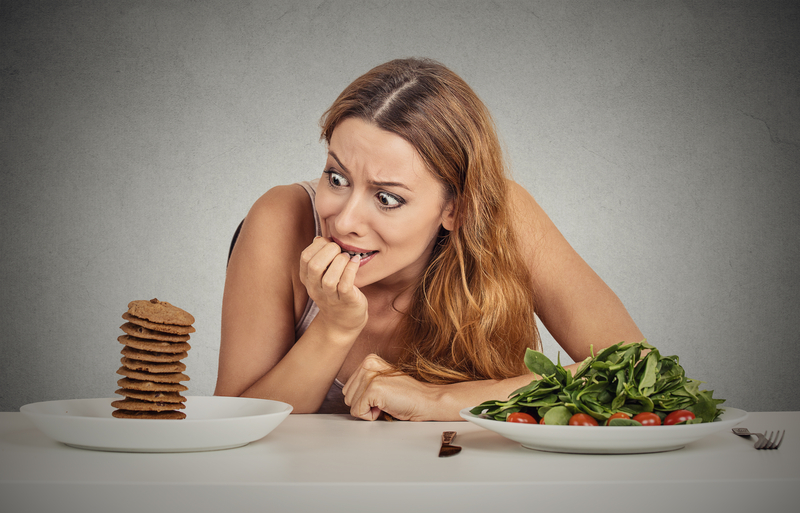Stress and weight gain are closely related. Anxiety can lead to weight gain because it causes changes in hormones production. More over lowers the motivation to have a healthy lifestyle and causes binge eating disorder. This happens when the individual ends up eating large quantities of food in an attempt to improve mood and reduce anxiety.
It is important to identify the presence of anxiety in order to be able to start treatment and allow weight loss. Here are the top 3 changes that anxiety causes in the body and what to do to treat it.
Anxiety Causes Hormonal Changes
Anxiety causes an increase in the production of the hormone cortisol. This has the effect of stimulating the production of fat in the body.
This is because, in stress situations, the body tends to produce more energy reserves in the form of fat so that the body has a good caloric reserve that is used in cases of food crisis or times of struggle.
What to do:
To reduce anxiety, you can use simple strategies such as daily walking outdoors and doing relaxation activities. Such as practicing yoga and meditation. Having a good night’s sleep and practicing physical activity regularly also help to relieve stress and reduce the excess production of cortisol.
However, it is important to remember that in some cases of anxiety, medical and psychological monitoring might be needed for your treatment and may also require the use of medications.
Anxiety Causes Binge Eating
Anxiety causes moments of binge eating. Which means increased consumption especially of sweets, bread, pasta and other foods sources of carbohydrates and sugar. This naturally causes a great increase in the consumption of calories, leading to the weight gain and difficulty to lose weight.
These moments of binge eating happen because sweet or carbohydrate foods stimulates the production of serotonin, a hormone that creates a sense of well-being in the body, momentarily relieving obesity.
What to do:
To control binge eating, you should have a balanced diet and eat every 3 or 4 hours. This reduces hunger and helps to decrease the urge to eat.
Anxiety Lowers Motivation
Anxiety also lowers motivation to pursue a healthy lifestyle, causing you to not have the courage to engage in physical activity and eat well. This happens mainly due to excess of cortisol, which also makes you feel tired and not in the mood.
What to do:
To have more motivation, you can practice physical activity outdoors or with a friend to have company. Don’t forget to ask friends and family members to try it also to have a healthy routine for encouragement.
Regularly consuming foods rich in omega-3s such as sardines, salmon, tuna and nuts, and tryptophan-rich foods such as banana, oats and brown rice also helps to improve mood and keeps motivation high. Establishing real weight loss goals along with the dietitian also helps you maintain a healthy pace of weight loss. Also reduces your personal weight loss costs quickly.
